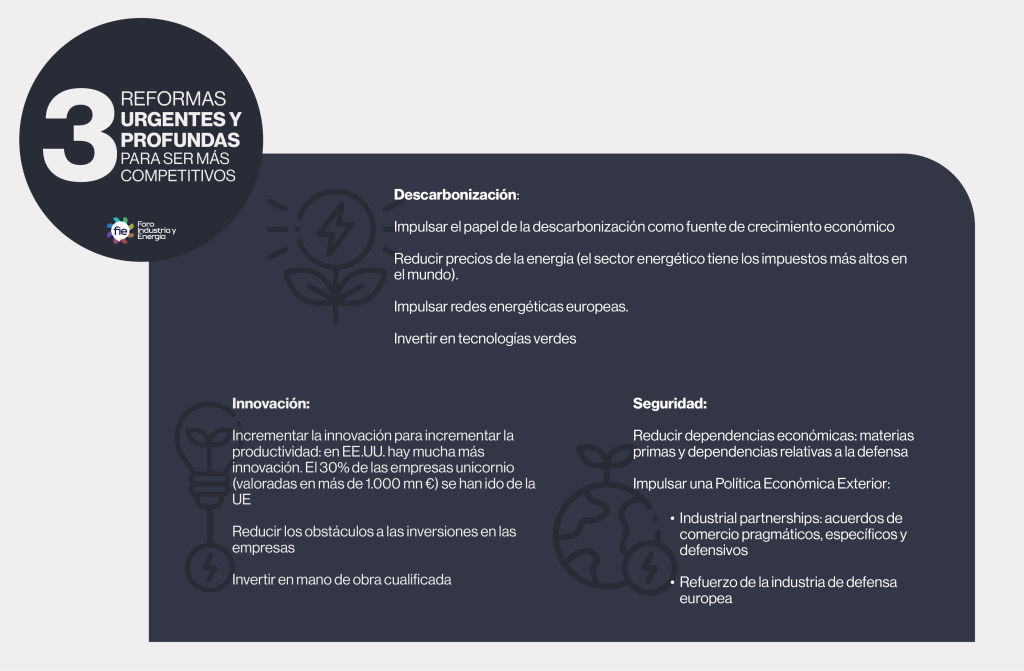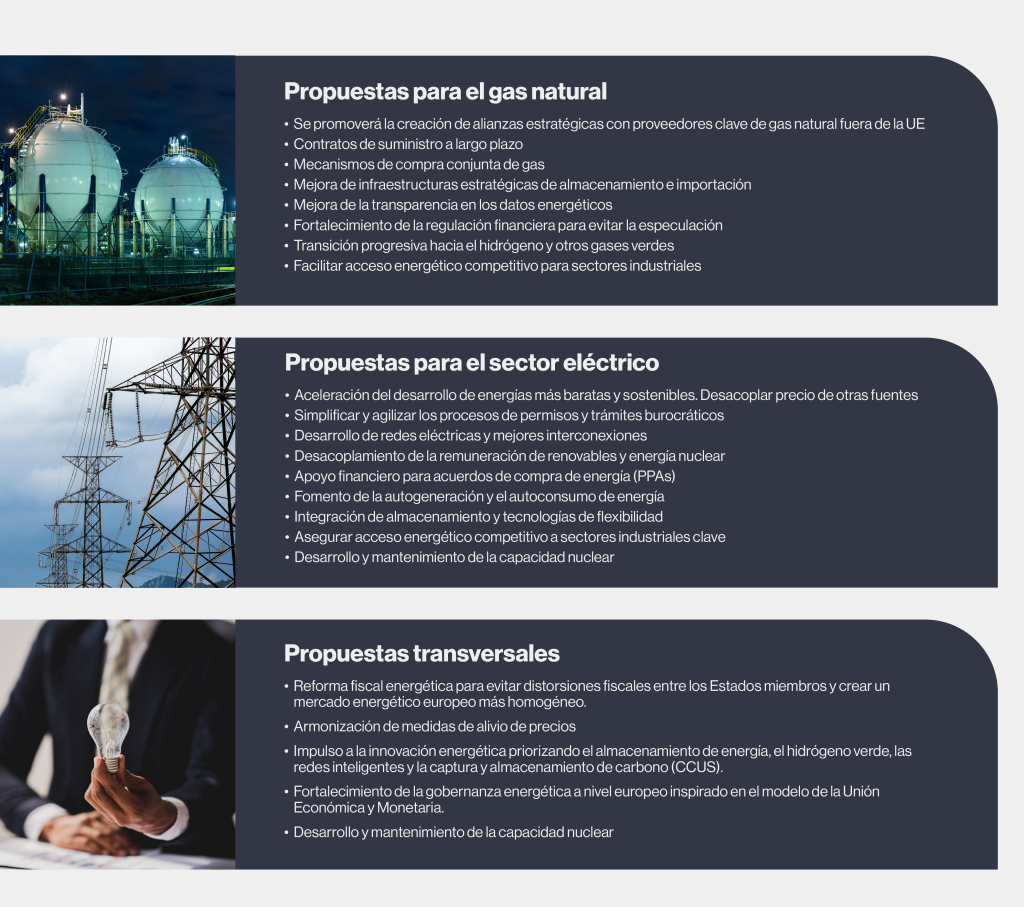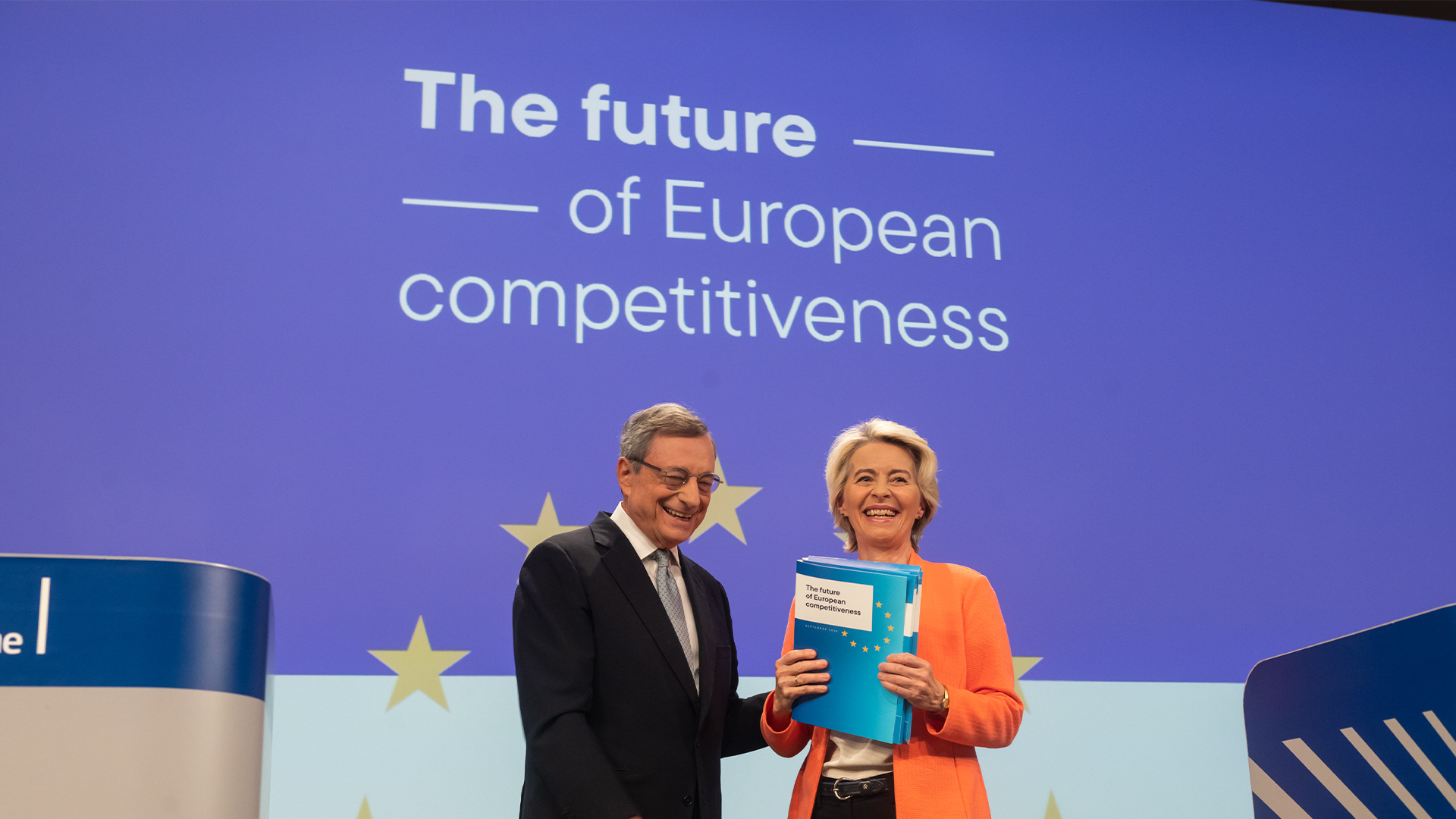Foro Industria y Energía has analyzed the report The Future of European Competitiveness, in which former Italian Prime Minister Mario Draghi outlines the necessary transformations for the EU to be competitive on the global stage. The report includes 140 measures to promote competitiveness, 21 of which are directly related to the energy management of industry.
The document supports the long-standing claim of Foro Industria y Energía to “reconcile industrial and energy policies” so that decarbonization becomes an opportunity to safeguard the competitiveness of industry.
Conclusions of Foro Industria y Energía based on the Draghi Report:
- The report highlights the need for a European industrial policy that increases competitiveness without abandoning the ecological transition—a competitiveness-sustainability binomial that Foro Industria y Energía has been advocating since its inception.
- The energy transition is an undeniable process. For it to be achieved, a pragmatic and orderly transition must be pursued, enabling total long-term decarbonization of the industry.
- The document points out that “the cheapest and most efficient path to meeting the EU’s decarbonization goals could increase dependence on China.” Foro Industria y Energía emphasizes the importance of weighing the consequences of this decision for the decarbonization of European industry, especially in renewable technologies and the automotive sector, and urges finding medium- and long-term balances, which could include agreements with China to leverage synergies between both markets.
- The Draghi report comes at a time of change, both in the composition of the European Commission and the Spanish government. We find ourselves at an opportune moment to strengthen collaboration between industry and energy departments at both the European and national levels. On a national scale, it would be interesting to promote an inter-ministerial initiative to align the interests and needs of industry and energy, or alternatively, the development of a Joint Commission in the General Courts that defines a long-term strategy to optimize energy management, ensuring the future of a competitive industry, as proposed by Foro Industria y Energía in 2022.
The Draghi Report: Situation analysis and proposed measures
The objective of the Draghi Report has been to design a new industrial strategy for Europe to overcome its competitiveness barriers. Although it is not binding, it will be reflected in the mission letters of the Commissioner candidates who will be presented to the European Parliament on Tuesday, September 17.
“To be competitive, the European economy needs to lower energy costs without abandoning decarbonization and reduce energy dependencies.”
The Scenario
The growing growth gap between the European Union and its two main competitors, China and the US, puts the new executive in a situation where either investment must be significantly increased, or a choice must be made between climate and competitiveness. This gap is partly due to the fact that the significant climate policies developed in recent years have not been accompanied by a corresponding European industrial policy.
The European economy needs to undertake three major transformations to be competitive on the global stage: accelerate innovation, lower energy costs without abandoning decarbonization, and reduce strategic dependencies. In this context, the report recommends that the European Commission adopt a genuine “foreign economic policy” for the EU. At the same time, it identifies three barriers holding back competitiveness: fragmentation of the single market, lack of joint policies with a defined approach, and high regulatory burden.

Energy management measures for industry
This report, commissioned by the President of the European Commission, Ursula von der Leyen, proposes a new industrial strategy for Europe, which would require a significant increase in public investments, estimated at an additional 5% of GDP per year.
The report proposes a joint plan for decarbonization and competitiveness, with 21 measures directly related to industry and energy. Regarding energy management for industry, the report proposes specific measures such as supporting internationally competitive industries in accessing competitive energy sources within the EU, promoting self-consumption in energy-intensive industries, and encouraging PPAs (Power Purchase Agreements) for the industrial sector.
These specific measures are complemented by more general ones for the energy sector, but equally important for enhancing industry access to clean energy: simplifying and streamlining permits and administrative processes to accelerate the deployment of renewable energies, flexibility infrastructure, and networks; and strengthening system integration, storage, and demand flexibility to control costs and boost the competitive adoption of renewable energies.
The report highlights that a central element to accelerating decarbonization will be unlocking the potential of clean energy through a collective EU approach to networks. “If there is one horizontal area in the energy sector whose importance cannot be overstated, it is the EU energy networks,” the text states.
The report stresses that “if Europe’s ambitious climate goals are accompanied by a coherent plan to achieve them, decarbonization will be an opportunity for Europe. But if we do not coordinate our policies, there is a risk that decarbonization will be detrimental to competitiveness and growth.”
In fact, EU companies still face electricity prices two or three times higher than those in the United States, and natural gas prices are four or five times higher. This price gap is mainly due to Europe’s lack of natural resources, but also to fundamental problems with our common energy market. The report notes that without a plan to transfer the benefits of decarbonization to end users, energy prices will continue to weigh on growth.
21 specific measures for energy management in industry included in the Draghi Report

The Draghi Report confirms many of the issues that Foro Industria y Energía has been warning about, and the idea of placing industrial competitiveness at the center of the debate. Obviously, energy management is not the only element that will shape industrial competitiveness, but it will be a fundamental and essential aspect.
As we already demanded in 2021, we have the opportunity to reconcile industrial policy with energy policy.

